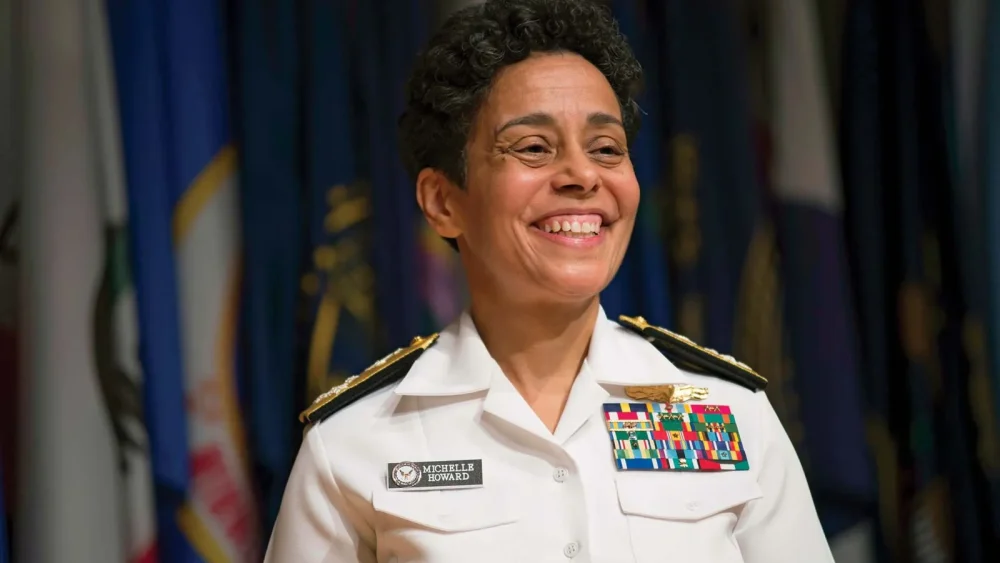The U.S. Navy draws its enduring strength from choosing the best leaders, no matter their background. Admiral Michelle J. Howard proves this point decisively. She became the first African American woman to attain four-star rank in the Navy, and she also served as the first woman Vice Chief of Naval Operations (VCNO).
Moreover, her legacy reaches far beyond titles. She led from the front in operational command, acted with unwavering ethical courage, and drove meaningful institutional change. Ultimately, her career doesn’t just mark history; it moves the Navy forward.
Admiral Michelle Competence Over Compliment
Born in 1960 on an Air Force base, Howard entered a world of military structure. Still, he faced the unspoken barrier of being a woman of color in a service historically dominated by white men. She graduated from the U.S. Naval Academy in 1982, part of the third class to include women, and immediately set about proving her merit.
From the start, Howard didn’t chase glory; she built ironclad competence. She took on the toughest assignments, from sea tours across multiple ships to demanding engineering roles.
Moreover, she focused on technical mastery, earned trust through performance, and learned the fleet’s complex machinery and logistics. This essential, often behind-the-scenes work powers every naval mission. As a result, she forged a reputation as a leader whose judgment rests on experience, not privilege.
The Operational Crucible: From Command to the High Seas
Howard’s true impact was felt in the operational arena. Her career was a tour de force of command assignments:
- First African American woman to command a U.S. Navy ship: In 1999, she took command of the USS Rushmore (LSD-47), a landing ship that conducts complex amphibious operations. This assignment was a testament to her leadership and her ability to handle the full, demanding scope of ship command.
- Combined Task Force 151 (Counter-Piracy): In 2009, Howard assumed command of this multinational anti-piracy task force off the coast of Somalia. In this high-stakes environment, she coordinated international naval forces to safeguard global maritime commerce. This mission showcased her skill in diplomatic and operational maneuver, balancing the use of force with precise international law.
- Africa Command and NATO: Later roles saw her tackling complex geopolitical challenges in the Middle East and Africa, proving her expertise in joint and multinational environments.
Her operational service demonstrated that her groundbreaking promotions were based on unquestionable performance in the most demanding roles the Navy offers.
The Ethical Burden: Leading Through Institutional Change
Howard’s influence as VCNO (the Navy’s second-highest uniformed officer) went beyond strategic planning.
She became a pivotal force in advocating for ethical consistency and institutional fairness. Her presence at the highest levels sent a powerful, undeniable message about the Navy’s commitment to merit and diversity.
However, her journey also highlights the heavy burden carried by “firsts.” She had to lead with a hyper-vigilance that her predecessors did not, knowing that her performance and her responses to crises would be judged by a stricter, more public standard. This included:
- Championing Full Integration: She worked to ensure that new policies for integrating women into combat roles were not only implemented correctly but also supported culturally.
- Setting Ethical Standards: She was a vocal proponent of maintaining the Navy’s values, particularly during internal ethical challenges, reminding the service that integrity is the true foundation of combat readiness.
Her story makes clear that institutional courage—the bravery required to challenge the status quo, champion fairness, and stand for moral clarity—is as essential to modern leadership as tactical genius.
The Enduring Legacy of Service
Admiral Howard retired in 2017 after 35 years of service, having left an indelible mark on the U.S. Navy. Her retirement was followed by service in the private and academic sectors, where she continues to apply the principles of leadership she perfected at sea.
On Veterans Day, her path offers powerful, enduring lessons for service members, leaders, and citizens alike:
- Excellence is the Barrier Breaker: Howard’s career proves that competence is the ultimate, unanswerable argument against prejudice. She didn’t ask for a seat at the table; she earned it through relentless, flawless execution of her duties.
- The Burden of the First: Those who break barriers often carry the weight of representation, facing obstacles their peers do not. Howard’s path reminds us to honor the courage required to simply persist.
- Integrity and Service: She demonstrated that leadership at the highest level is about ethical consistency. Defending freedom is not just about winning battles; it’s about ensuring that the institution that fights them upholds the very principles it is sworn to protect.
Admiral Michelle J. Howard is more than a symbol; she is the embodiment of a modern, diverse, and operationally excellent Navy—a service where any American, regardless of race or gender, can rise to command and guide the fleet.











